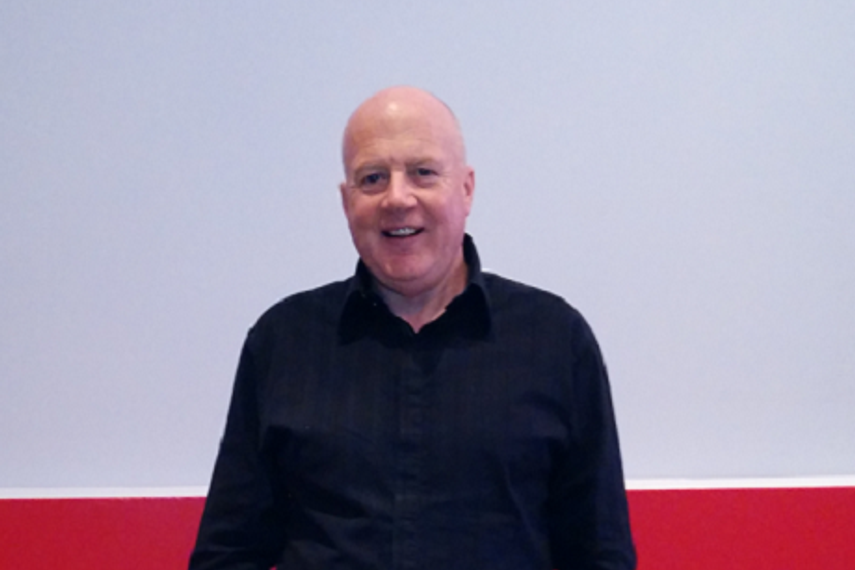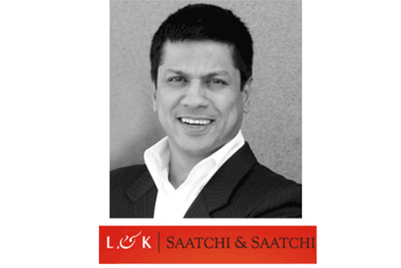Kevin Roberts, worldwide CEO, Saatchi & Saatchi, made a brief visit to India to discuss targets and growth, amongst other things, with the L&K Saatchi & Saatchi team. We caught up with Roberts who steps down next year, to understand expectations (from the merged L&K Saatchi & Saatchi), perspective on the Indian market and global challenges, among other things.
What brings you to India?
I wanted an update on the merger. They’ve had close to a year to settle down. I wanted to sit with the leadership team to talk about what our expectations are together for the next 18 months.
What are those expectations?
I’m happy so far with the way it’s gone. In fact everyone is happy (media, people and the team). Now, it’s about how do we set ourselves for growth. Of course we want to win new businesses, and do better work, and all the normal nonsense.
We’ve spoken about what success would be for us for the next two years. I don’t care what happens in Cannes, but what I would like to be doing is the most popular work which is the most loved in India. We want to create work that is shared the most. I guess Ogilvy and Lowe are currently doing it in the country, but we aren’t. In most countries, Saatchi is creating work like that. So, the first task is to make work that people love and share.
Secondly, I’ve been coming to India since 1982, but I’ve never felt so much real, substantive excitement in the air. There’s a feeling that the country is politically, economically and financially ready now. Consumer confidence is high too. So when you talk about growth, India is the right country (for it). There’s a feeling of cautious optimism and hope. Saatchi & Saatchi over the years has been famous for creating great social (socially relevant) work. So, at a time like this we should be able to play a role and do something that helps accelerate the progress of India. It’s not just about building a client or a brand.
I’ve asked Praveen (Kenneth) and the team to look at these two things.
Why is it that brands is are giving so much importance to social (socially relevant) work? Is that the only kind of work that gets shared?
The power has switched away from media, brands and retailers to people. People are interested in what’s going to happen in the world around them. They are saying, ‘listen, yes I understand your brand promise, but what else do you do and what else do you give me? How do you make my life more fulfilling?’ So they are more interested in work like that.
Earlier, social work didn’t get so much exposure because brands didn’t have media money. Now, you don’t need media money. You have a good idea, and thanks to digital, the consumer is the media. The word gets round very quickly and powerfully. I think that companies too have employees who are working for them and a client, but they actually want to do something that helps their own family or people. I think there’s a perfect circle being formed and Saatchi has been at the heart of that for years. So, I’d like to reciprocate that in India.
Prior to the acquisition, Saatchi had a pretty quiet time in India. When was the acquisition first thought about?
We had 12 years of dismal failure trying to do it alone in the country. That’s when I thought enough is enough and I don’t want to do it anymore. India is really important, and is the most exciting, crazy, complex market that we do business in. As a country it is very difficult for an outsider to understand the rhythm, the connections, the networks and sub-networks. So, we sat down and looked for agencies that were doing well. We liked these guys (Law & Kenneth). We knew Praveen as he earlier used to work with Publicis. They are winners against all odds. They’ve won businesses they should have never won. They are successful.
There were two things I really liked about them. Our spirit is ‘Nothing is impossible’, theirs is ‘Anything is possible’. We had set our thought first so, I either had to buy them or sue them.
Secondly, they’ve had their founders together right from the word go, while we have had no continuity here in India. We’ve had stars, who’ve come and gone. This is a very volatile market and I want us to get this right.
Were other agencies considered as well?
We looked at a couple. But didn’t have discussions with any other than Law & Kenneth.
Which are the top five markets for the agency worldwide? How has India's contribution changed since the acquisition?
The top five markets are US, Brazil, UK, China and Germany. India is outside the top 20, but the short term target (for the next two years) for us is to be in the top 20 and then ultimately in the top 10.
You've led the agency as CEO since 1997. How has the role of an advertising agency changed over the last 17 years? How has your role changed?
Some things have changed completely, while some things have not changed at all.
Great advertising makes you do one of three things: laugh, cry or think. That hasn’t changed whether you see it on YouTube or on TV. Ideas are at the core of everything we do. Emotion is more important the rational.
What has changed is mobility and consumer choice.
How much does digital contribute to revenues of the agency globally? How's that number different from India and Asia?
About a third of our revenues come from digital alone currently.
Ultimately, everything is going to be digital. I don’t look at the business as digital and traditional. Those days are gone. The whole world is digital-analogue-real-virtual. Consumers don’t differentiate. They just want everything available on a screen on either their PC, tablet, smartphone, smart TV. They don’t care; they just want it all to be connected, non-intrusive, seamless and fast.
Agencies are so far behind, it’s ridiculous. We’ve still got departments like creative, account etc. This is nonsense and we got to get out of that fast. We’re consciously looking to get out of this globally.
When it comes to Indian digital revenue, it’ll be half of the percentage (of total revenue) we have globally. But that’s going to change over time. The country has the third highest smart phone usage after USA and China. When it comes to Facebook users, the country ranks third after USA and Brazil. The middle class of India is so connected now, so the revolution is well on the way.
One more thing I liked about L&K was that the agency was pretty good digitally.
What are the biggest challenges in the industry today? Would talent be one of them?
Globally, for us talent is not a problem. We want people who have IQ, EQ and TQ. We are looking for people who have those three things and they can demonstrate them in advertising. We are very famous in advertising and we don’t have that problem.
In India, we have a problem that they want to move to bigger agencies like McCann, Ogilvy & JWT because they think there is more training, development and security. Now, what we want to do with L&K and Saatchi is inform people that we have a local company with local leaders, so you can get to the top of this company. We are going to bring you training from Saatchi & Saatchi from the outside, give opportunities with Saatchi & Saatchi outside of India. We want to be better at retaining our talent. In the past, Ogilvy, JWT and BBDO have taken our people almost every week!
Globally, the biggest challenge for us would be that we are slow and the consumer is very fast. We have to eliminate these departments and the differences and play it together. We have to speed up.
The holding companies have to learn how (their agencies need) to play better together. We have Saatchi, Leo Burnett, Fallon, BBH, Publicis, Starcom and Mediavest. Yes, we have to win at the club level, but when we come together to play for India (for Publicis), we have to learn to play faster and more effectively, something that we’ve not done before.
Awards don’t figure in the short term target for L&K Saatchi & Saatchi. But, as CEO what's the importance you give to awards globally?
Pablo Del Campo, our worldwide creative director, believes we should do well at Cannes because it’s a talent magnet and it demonstrates standards and so on. I can’t disagree with that, but I am not happy with the way Cannes Lions is currently. I think there are too many awards and categories. I think it has become a numbers game, and a revenue game for them. I’m not really excited about them.
I’d rather get the ‘People’s awards’ than the jurors award.




.jpg&h=334&w=500&q=100&v=20250320&c=1)
.jpg&h=334&w=500&q=100&v=20250320&c=1)

.jpg&h=334&w=500&q=100&v=20250320&c=1)


.jpg&h=334&w=500&q=100&v=20250320&c=1)


.jpg&h=334&w=500&q=100&v=20250320&c=1)







.jpg&h=268&w=401&q=100&v=20250320&c=1)
